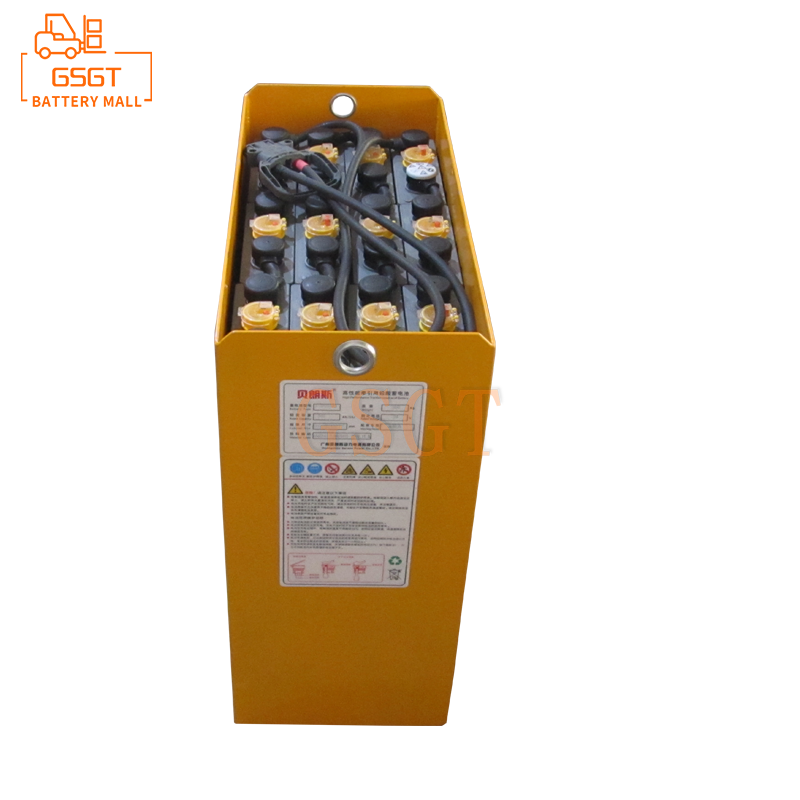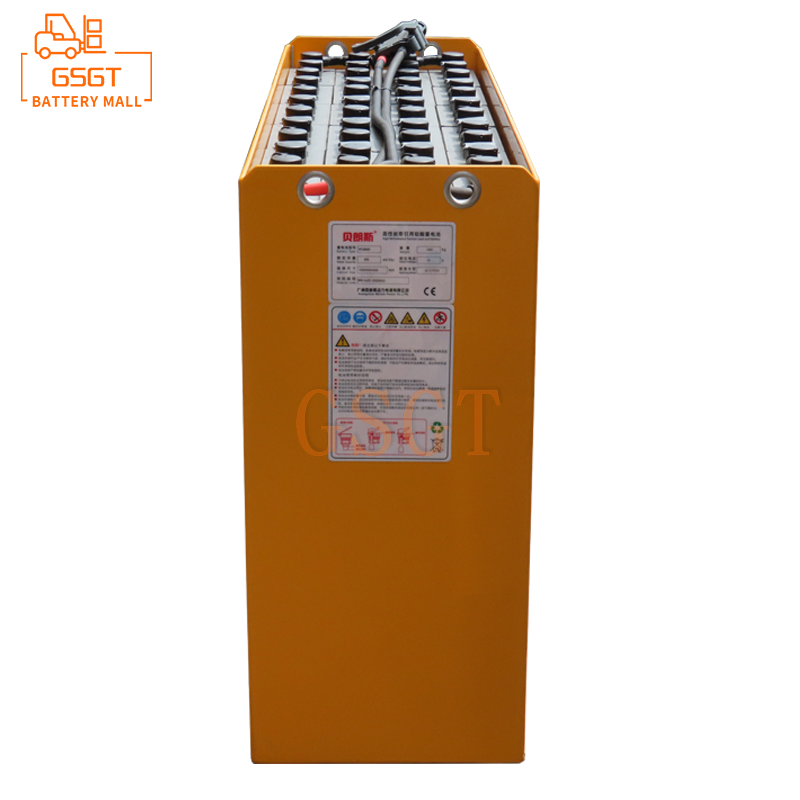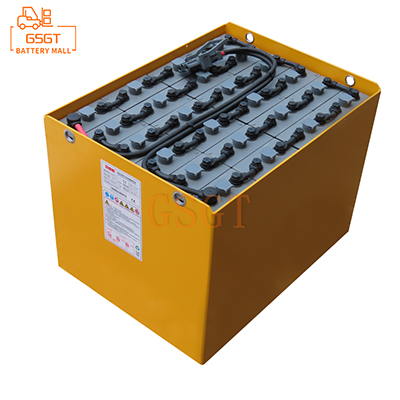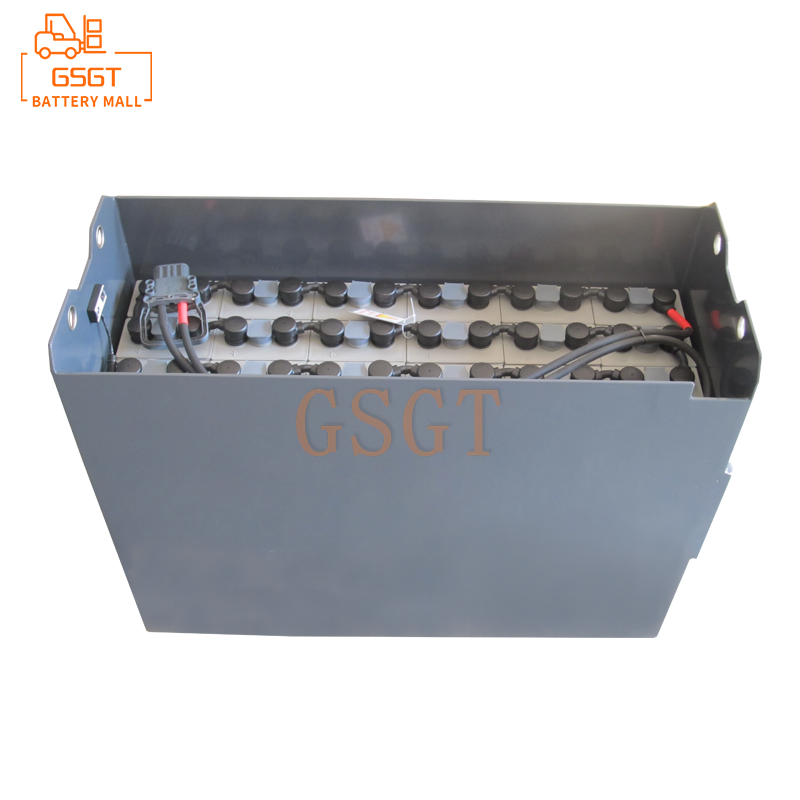Time:2025-04-07 11:14:48
Browse:720
In special scenes such as mining in plateau areas, plateau logistics centers, forklifts undertake important material handling tasks. However, the high altitude environment poses many challenges to the performance and life of lead-acid batteries pulled by forklifts. How to make the battery run stably in high altitude operation has become the key to ensure the efficient work of forklift trucks and reduce operating costs.
Impact of high altitude environment on forklift traction of lead-acid batteries
(1) The air pressure is exchanged with the gas inside the battery
As the altitude increases, the air pressure decreases significantly. Under normal pressure, the gas (such as hydrogen and oxygen) generated during the chemical reaction inside the lead-acid battery can be smoothly discharged through the safety valve. However, in the high altitude and low pressure environment, the internal pressure of the battery is too high compared with the outside, and the gas discharge rate is accelerated, resulting in intensified water evaporation in the electrolyte. This will not only reduce the electrolyte level, but also may cause plate exposure, accelerate plate vulcanization, and then affect the battery capacity and charge and discharge performance.
(2) Temperature change and battery performance
The temperature at high altitude decreases with the increase of altitude, and the temperature difference between day and night is large. The best working temperature of the lead-acid battery is about 25℃, and the low temperature will increase the viscosity of the electrolyte, slow the ion diffusion rate, and increase the internal resistance of the battery. This directly leads to reduced battery charging and discharging efficiency, difficult to fill when charging, voltage drops too fast when discharging, forklift is difficult to start, and insufficient power when running.
(3) Thin air and battery heat dissipation
Thin air is one of the distinguishing features of high altitude. For forklift traction lead-acid batteries, heat dissipation mainly depends on air convection. In the thin air environment, the ability of air to take away the heat of the battery is weakened, and the heat generated by the battery during the charging process is difficult to effectively distribute, which is easy to cause the battery to overheat. Overheating will accelerate the chemical reaction inside the battery, aggravate the corrosion of the plate, shorten the service life of the battery, and even cause serious failures such as battery bulge and leakage.
Battery selection strategy for high-altitude operation
(1) Choose batteries with good low temperature performance
In the high altitude and low temperature environment, the lead acid battery with excellent low temperature performance should be preferred. This type of battery usually uses a specially formulated electrolyte, which has a lower freezing point and can maintain good fluidity at low temperatures to ensure normal ion transmission. At the same time, the plate material has been optimized to have a higher low temperature activity and can maintain a stable electrochemical reaction at low temperatures.
(2) Pay attention to the tightness of the battery
In order to cope with the problem that the electrolyte water evaporates too fast under high altitude and low pressure environment, it is necessary to choose a lead-acid battery with good sealing. The high-quality battery housing uses high-strength, age-resistant materials to effectively prevent electrolyte leakage.
(3) Match the appropriate battery capacity
Considering the factors that the battery performance at high altitudes decreases, the battery capacity should be appropriately increased in the selection. According to the actual operation intensity and operating conditions of the forklift, the required battery capacity is calculated, and on this basis, a certain margin is increased.
Key points of battery maintenance in high altitude operation
(1) Electrolyte maintenance
1. ** Check the liquid level regularly ** : In high altitude operation, due to the rapid evaporation of electrolyte water, it is necessary to increase the frequency of checking the electrolyte level, at least once a week. If the liquid level is lower than the minimum scale line, distilled water or special lead-acid battery supplement liquid should be added in time. When adding a battery, add it slowly after the battery is charged to prevent electrolyte overflow.
2. ** Monitoring electrolyte density ** : The electrolyte density reflects the charging state of the battery and the internal chemical reaction. Use a density meter to measure the electrolyte density every month. Under normal circumstances, the electrolyte density under full charge should be maintained at 1.28g/cm³ (25 ° C) at high altitudes. If the density deviates from the normal range, it may mean that there is a fault in the battery, such as plate vulcanization, short circuit, etc., which needs to be checked and repaired in time. For example, when the electrolyte density is found to be too low, it may be that there is leakage inside the battery, and the battery shell should be checked whether there is damage and the pole is well sealed.
(2) Charge management
1. ** Adjust charging parameters ** : Low temperature and pressure changes at high altitudes will affect the battery's charging acceptance. Therefore, the charging parameters of the charger need to be adjusted according to the actual ambient temperature and altitude. Generally speaking, the charging voltage should be appropriately increased at low temperatures to compensate for the voltage drop caused by the increase in the internal resistance of the battery to ensure that the battery can be fully charged.
2. ** Control charging time ** : Avoid overcharge and undercharge, each charging time should not be too long, generally should not exceed 8-10 hours (the specific time depends on the battery specifications). At the same time, it is not possible to interrupt charging when the battery is not full, and a good habit of "shallow charging and shallow discharge" should be developed, that is, charging when the battery power remains 20%-30% to avoid deep discharge of the battery.
(3) Battery heat dissipation and insulation
1. ** Optimized heat dissipation measures ** : Although the temperature at high altitudes is low, the battery heat dissipation still faces challenges due to thin air. The air flow in the battery compartment can be increased by optimizing the ventilation system of the forklift truck. For example, install additional cooling fans in the battery compartment, or improve the design of the vents to improve the efficiency of air convection. At the same time, regularly clean the dust and debris on the battery surface and in the battery compartment, keep the heat dissipation channel unblocked, and ensure that the heat generated by the battery can be dissipated in time.
2. ** Implementation of insulation measures ** : In a low temperature environment, the battery insulation is equally important. Insulation materials, such as foam board and insulation felt, can be laid in the battery compartment to reduce the heat loss of the battery. For forklifts parked for a long time, you can consider using a battery heating device to preheat the battery before charging or before operation, raise the battery temperature to a suitable working range, and improve the battery charging and discharging performance and service life.
High altitude operation personnel training and emergency handling
(1) Personnel training
Professional training for forklift operators and battery maintenance personnel at high altitudes. The training content includes the principle of the influence of high altitude environment on lead-acid batteries, special battery selection knowledge, maintenance points and charging operation specifications. This helps operators understand how to properly plan the forklift operation process to avoid excessive discharge or battery damage caused by improper operation. Maintenance personnel must master battery troubleshooting and repair skills, and handle battery problems in a timely manner to ensure normal operation of the forklift.
(2) Emergency response plan
Develop a sound emergency response plan to deal with the sudden failure of batteries that may occur in high-altitude operations. When the battery has serious leakage, bulging, fire and other emergency situations, operators and maintenance personnel should know how to quickly take safety measures, such as immediately cut off the power supply, use fire extinguishers, evacuate the surrounding personnel, etc. At the same time, the fault reporting process is clear, and the relevant technicians and managers are notified in time to ensure that the faulty battery can be evaluated and repaired in the shortest time, and the production stagnation caused by the fault can be reduced.
At high altitudes, forklifts pulling lead-acid batteries face multiple challenges such as pressure, temperature and thin air. Through reasonable selection, careful maintenance, professional training of personnel, and emergency handling plans, the performance and reliability of batteries in high-altitude operations can be effectively improved, and the efficient and safe operation of forklifts can be ensured to meet the needs of industrial production and logistics operations in high-altitude areas.

$1105

$3810

$3405

$2040

MESSAGE
Professional And Efficient
Security
Affordable Price
Professional Services